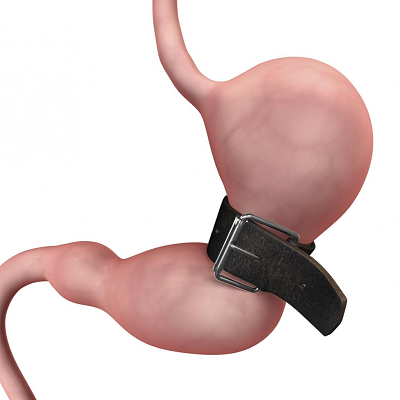
In the world of cosmetic surgery, bariatric surgery has gained significant attention and sparked numerous discussions. However, along with the growing interest, there came various myths and misconceptions about bariatric surgery. In this blog post, we aim to break the stigma surrounding bariatric surgery and provide accurate information to dispel common myths. Let’s dive in and explore the truth behind these misconceptions.
- Myth: Bariatric Surgery Is The Easy Way Out:
- Myth: Bariatric Surgery is Only For People Who Are Lazy or Lack Self-control:
- Myth: Bariatric Surgery is Dangerous and Has Many Risks:
- Myth: Bariatric Surgery Leads to Severe Nutritional Deficiencies:
- Myth: Bariatric Surgery is a Cosmetic Procedure:
- Myth: Bariatric Surgery Guarantees Permanent Weight Loss:
- Myth: Bariatric Surgery is Expensive and Not Covered by Insurance:
- Take Away:
Myth: Bariatric Surgery Is The Easy Way Out:
One of the most prevalent myths about bariatric surgery is that it’s the easy way out for individuals struggling with obesity. This misconception undermines the dedication and hard work that goes into the decision to undergo bariatric surgery. While the surgery itself can assist with weight loss, it is not a magic solution. Bariatric surgery requires a lifelong commitment to maintaining a healthy lifestyle, including dietary changes, regular exercise, and ongoing medical support.
Myth: Bariatric Surgery is Only For People Who Are Lazy or Lack Self-control:
Another damaging myth associated with bariatric surgery is that it is only suitable for individuals who lack self-control or are lazy. This stereotype oversimplifies the complex nature of obesity. Factors such as genetics, hormonal imbalances, emotional triggers, and underlying medical conditions can contribute to weight gain. Bariatric surgery provides an opportunity for individuals to address these underlying causes and improve their overall health.
Myth: Bariatric Surgery is Dangerous and Has Many Risks:
Contrary to popular belief, modern bariatric surgery is a safe and well-established medical procedure. Advances in surgical techniques, anaesthesia, and post-operative care have significantly reduced the risks associated with these procedures. It is crucial, however, to choose a qualified and experienced surgeon who specializes in bariatric surgery. Proper evaluation, thorough pre-operative testing, and ongoing follow-up care are essential to minimize any potential risks.
Myth: Bariatric Surgery Leads to Severe Nutritional Deficiencies:
While it’s true that bariatric surgery alters the digestive system, leading to changes in nutrient absorption, nutritional deficiencies can be managed effectively through proper dietary guidelines and ongoing monitoring. Patients are advised to follow a structured eating plan, which includes consuming nutrient-dense foods and taking appropriate supplements to ensure optimal nutrition. Regular blood tests and consultations with a registered dietitian are integral to maintaining a healthy balance of nutrients.
Myth: Bariatric Surgery is a Cosmetic Procedure:
It’s important to differentiate between cosmetic surgeries and bariatric surgeries. Bariatric surgery is primarily a medical procedure aimed at improving overall health and reducing obesity-related health risks. While significant weight loss is a common outcome, the focus of bariatric surgery is not solely on appearance. The health benefits include the reduction of high blood pressure, improved blood sugar control, decreased risk of cardiovascular diseases, and alleviation of joint pain.
Myth: Bariatric Surgery Guarantees Permanent Weight Loss:
Bariatric surgery provides a powerful tool for weight loss; however, it is not a guarantee of permanent results. To maintain long-term success, individuals must commit to significant lifestyle changes, including adopting healthy eating habits and engaging in regular physical activity. The surgery jumpstarts the weight loss journey, but sustainable results rely on continuous effort and adherence to a well-rounded, healthy lifestyle.
Myth: Bariatric Surgery is Expensive and Not Covered by Insurance:
While the cost of bariatric surgery can vary depending on various factors, including the specific procedure and location, it is important to note that insurance coverage for bariatric procedures has significantly improved in recent years. Many insurance providers now recognize the medical necessity of bariatric surgery and offer coverage for eligible patients. Additionally, there are financing options available to make the procedure more accessible.
Take Away:
In conclusion, bariatric surgery is a viable and effective solution for individuals struggling with obesity. By dispelling the myths surrounding bariatric surgery, we hope to encourage informed discussions and empower individuals to make educated decisions about their health. Bariatric surgery is a life-changing journey that requires commitment, but it can lead to significant improvements in both physical and mental well-being.
If you also want to have a more toned appearance, you can contact us. Call Royal Cosmetics Islamabad directly or fill out the form given below.











Book Appointment